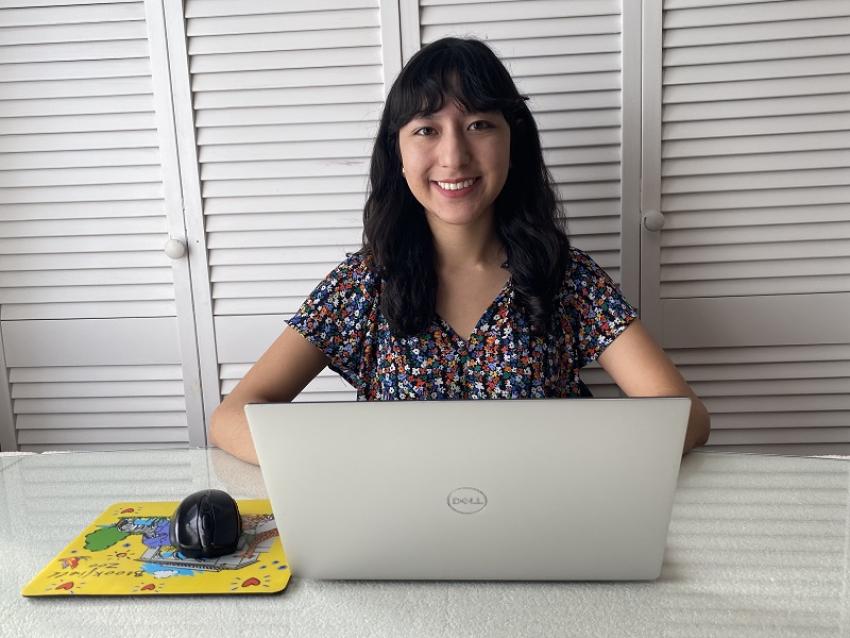
UK Graduate Conducts Science Communication Research Focused on Appalachian Communities
Bill Haneberg and Lauren Cagle received grant funding from the National Academies of Sciences, Engineering, and Medicine, or NASEM, last year for their proposal, “Engaging Nontraditional Geoscience Information Stakeholders in Appalachian Kentucky.” Because of COVID-19, changes to research methods have been made to address health and safety concerns associated with the pandemic, but work continues on the project and study participants are currently being interviewed. In addition to Haneberg and Cagle, Maria Sanchez, a 2020 graduate of the University of Kentucky, is part of the project team.
Sanchez says, “I am excited to be a part of the team and to have assisted in the complete redesigning of the study’s methodologies given the unprecedented challenges the pandemic has posed. The multidisciplinary nature of my three majors and the research experience I was privileged enough to accumulate during my time at the University of Kentucky have prepared me to succeed in a research environment that brings together experts of diverse scientific backgrounds. In order to understand science communication as dialogue and not monologue, as the name of one of our abstracts suggests, I believe it is imperative that we bring together a diverse combination of voices to the table—not only from researchers, but from community members that have a unique perspective from their own lived experiences.”
Sanchez graduated from the University with degrees in political science, environmental and sustainability studies, and international studies. She participated in undergraduate research and was a member of the University of Kentucky’s policy debate team. Sanchez talked this spring with the University of Kentucky News office about her experiences at the University as a student and the challenges she faced as an undergraduate student, before and during the pandemic.
Part of the research project involves investigating and understanding existing networks in communities, and according to Sanchez, “having to redesign the project has some benefits. The pandemic highlights the way virtual communications play an increasingly critical role in shaping community ties and communication strategies.” Sanchez is excited about receiving participants’ responses to questions and is interested to see what experiences have shaped their understanding of geology. She says, “This grant has taught me that people may have an informal understanding of geology. Too often that gets mistaken for having no knowledge of it at all. One of our roles as researchers is to understand how we can best connect communities with geologic information that may already be available and that is specifically related to issues they face and which they care deeply about.”
Although Sanchez has experience conducting science communication research, conducting work that involves photo voice and diary prompts is a new experience for her. Sanchez says, “The photo prompts are of particular importance for this study because they incorporate digital media, which help bring to life and contextualize the textual data we work with. One of the benefits of conducting our activities remotely is that people are more likely or able to share these in a virtual meeting than an in-person meeting.”
Sanchez hasn’t decided entirely where the future will take her, but she wants to pursue graduate education in public policy, focusing on community-based research. She is also interested in groups that are not part of a science community. Sanchez would like to draw upon her research experiences with the NASEM grant, her work recruiting Spanish-speaking participants for a project with The Arboretum at the University of Kentucky, and a water-resources project funded by the Kentucky Water Resources Research Institute, for which Sanchez interviewed people about climate-change issues.
The research team will present their work at the American Geophysical Union’s fall meeting in December 2020. The abstract for their virtual presentation, “Science Communication as Dialogue, Not Monologue: Engaging Underserved Geological Survey Stakeholders in Appalachian Kentucky,” may be accessed here, https://agu.confex.com/agu/fm20/meetingapp.cgi/Paper/701631.